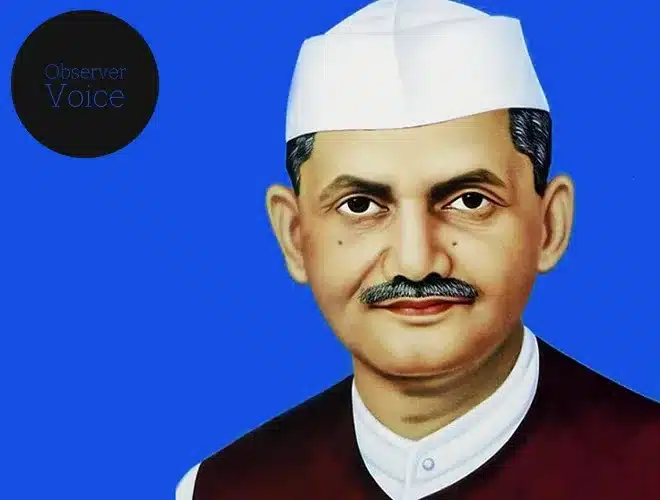Lal Bahadur Shastri (2 October 1904-11 January 1966), was an Indian freedom fighter and politician. He served as the second Prime-Minister of India.
In order to increase milk production and supply, he promoted the White Revolution. Additionally, he promoted the Green Revolution in 1965 so India could produce more food.
Early Life
Lal Bahadur Shastri was born on 2 October 1904, Uttar Pradesh, India. His father Sharada Prasad Srivastava was a schoolteacher who passed away when he was a year. After that, his mother moved to Mughalsarai with her two kids and settled there. He studied at the East Central Railway Inter College in Mughalsarai and Varanasi. In 1926, he completed his graduation from Kashi Vidyapeeth. A part of his bachelor’s degree, Vidya Peeth gave him the title “Shastri,” meaning “Scholar.” That title got into his name.
Mahatma Gandhi and Tilak influenced him a lot. Shastri participated in the Non-Cooperation Movement. He threw himself into the freedom fight with all his energy. He did several defiant camps and got sent to prison for seven years. During that time, he grew up and tempered his steel.
After independence, Shastri served as the minister for home affairs and transportation in Uttar Pradesh. He became union minister for rail and transport after being elected to the Indian parliament in 1952. In 1961, he was appointed minister of home affairs, and gained a reputation as an expert mediator.
In 1964, Shastri became the Prime-Minister of India, after the death of Jawahar Lal Nehru.
In order to increase milk production and supply, he promoted the White Revolution. Additionally, he promoted the Green Revolution in 1965 so India could produce more food. After that, a significant increase in food grain production was seen in Punjab, Haryana, and Uttar Pradesh.
Shastri visited lots of countries during his time as Prime Minister, including the Soviet Union, Yugoslavia, England, Canada, Nepal, Egypt, and Burma.
Awards and Legacy
He was awarded the Bharat Ratna posthumously.
A memorial “Vijay Ghat” was built in Delhi in his honor. There are many educational institutions named after him, including the Lal Bahadur Shastri National Academy of Administration in Mussorie, Uttarakhand. Delhi’s Lal Bahadur Shastri Institute of Management was founded by the Lal Bahadur Shastri Educational Trust in 1995.
Death
He died on 11 January 1966, Uzbekistan.

